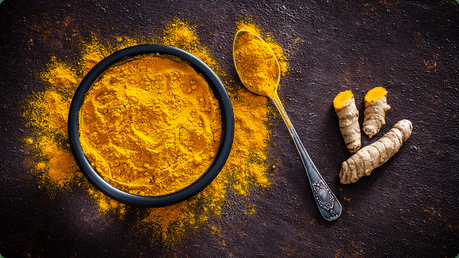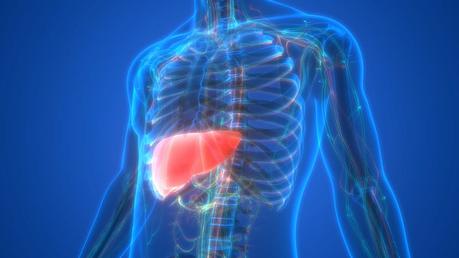Key takeaways
Turmeric may provide several beneficial health effects. Turmeric contains curcumin, which may slightly boost weight loss, decrease inflammation, reduce certain risk factors for heart disease, and provide other health benefits. Learn more Is taking turmeric safe? Studies suggest that most people can safely take turmeric or curcumin supplements. However, people with medical conditions need to speak with their doctor first. Some individuals, such as those on blood thinners, should avoid taking it altogether. Learn more Turmeric dosage and helpful tips. For best results, take 500 to 1,000 mg of turmeric extract or curcumin per day with meals that contain some fat. If you take more than 500 mg per day, split the doses between the morning and the evening. Learn more
Turmeric - the bright yellow spice used in many Asian and Middle Eastern dishes - has been credited with some impressive health benefits, such as weight loss and arthritis pain relief. While strong scientific evidence supports some of these effects, others require more research.
Read on to learn about the potential health benefits of turmeric, whether you should consider taking it, and how to do so safely and effectively.

Start your FREE 30-day trial!
Get instant access to healthy low-carb and keto meal plans, fast and easy recipes, weight loss advice from medical experts, and so much more. A healthier life starts now with your free trial!
Start FREE trial!
What is turmeric?
Turmeric comes from the plant known as Curcuma longa, which is native to India and Southeast Asia. Although it belongs to the ginger family, it's sometimes referred to as "Indian saffron."
Turmeric root is ground into a powdered spice that adds a vibrant golden color, peppery flavor, and an earthy aroma to curries and other exotic dishes.
Turmeric contains phytochemicals ("plant chemicals") called curcuminoids, which give the spice its bright color. The main one, curcumin, is considered turmeric's "active ingredient" and has been linked to health benefits.
However, turmeric spice only provides a small amount of curcumin. Pure turmeric powder contains around 3% curcumin, on average, and curry blends have even less.
It's estimated that people in India get approximately 2,000 to 2,500 mg of tumeric and 60 to 100 mg of curcumin per day from their diet.
In recent years, special formulations called "turmeric extracts" were developed. These highly concentrated extracts often contain up to 95% curcumin. For instance, a 500 mg capsule of turmeric extract may provide 475 mg of curcumin. You can also take isolated curcumin supplements.
Most researchers use turmeric extracts or isolated curcumin to test its effects on health. In this guide, turmeric and curcumin's benefits are discussed interchangeably.
Here is our review of nine potential uses of turmeric. Click on the topic you are interested in to go straight to it, or read them all for the most comprehensive review.
1. Can turmeric help you lose weight?

Taking turmeric or curcumin may slightly boost weight loss. However, it's far from certain.
In a review of 11 clinical trials, researchers concluded that taking curcumin led to an average loss of 2.5 pounds (1.14 kilos) in people who were overweight or at high risk of type 2 diabetes.
So far, only one study has shown rapid weight loss with curcumin supplementation: a 2015 trial in 44 people with metabolic syndrome who were already on a weight loss diet.
In this study, participants lost an average of 3.5 pounds (1.6 kilos) by eating a low-calorie diet for 30 days. After they added 800 mg of curcumin to the same dietary regimen for the next 30 days, they lost an average of 9 more pounds (4.1 kilos) and 1.6 inches (4.1 cm) from their waist.
In most trials, researchers told people not to make any changes to their usual diet or physical activity while taking turmeric or curcumin. And weight loss results from those studies are mixed.
In one trial, 240 people at risk for type 2 diabetes took 1,500 mg of curcumin per day or a placebo. After nine months, participants in the curcumin group lost an average of 8.5 pounds (3.9 kilos) and 1.4 inches (3.6 cm) from their waist. Those in the placebo group slightly gained weight and increased their waist size.
Other trials in which people were asked not to make changes to their usual diet or exercise habits have shown weight loss, although to a lesser degree.
In some studies, people who took turmeric or curcumin didn't lose weight, despite having beneficial changes to certain heart health markers, such as lower triglycerides.
It's possible that taking curcumin may help you lose a small amount of weight and slightly reduce your waist size. However, this doesn't seem to happen to everyone, and it's not clear what makes it more likely to be effective.
Fortunately, many people can lose weight without medications or supplements. The key is making lifestyle changes that lead to successful weight loss. For instance, there is strong evidence that following a low-carb diet and prioritizing high-protein foods can help you lose weight.
Typical dosages used in trials that evaluated weight loss: 500 to 2,000 mg of curcumin per day.
Summary
Taking curcumin or turmeric may potentially help you lose a small amount of weight. However, results from trials have been mixed.
2. Does turmeric reduce inflammation?

Inflammation occurs when your body senses an irritant - such as a virus, a splinter, or an open wound - and defends itself by ramping up its immune system. It's usually a short-lived essential response that helps your body fight illness and heal from injury.
However, in some cases inflammation can become chronic due to stress, illness, or lifestyle factors. Sustained, low-level inflammation has been linked to heart disease, diabetes, cancer, and other conditions. Keeping inflammation under control may lead to healthier aging.
Animal and human research spanning decades suggests that curcumin may help reduce inflammation. More recently, high-quality clinical trials have demonstrated curcumin's anti-inflammatory effects.
In several trials of people with chronic disease, curcumin has been shown to decrease markers of inflammation in the blood, including C-reactive protein (CRP), Interleukin-6 (IL-6), and tumor necrosis factor-α (TNF).
In 2015, researchers reported that when people with metabolic syndrome took 1,000 mg of curcumin for eight weeks, they lowered their CRP levels by an average of 2.12 mg/dL. By contrast, those who took a placebo had no change in CRP.
However, one review found that in some trials, taking turmeric or curcumin didn't drastically reduce CRP or other inflammatory markers in people who had rheumatoid arthritis, advanced kidney disease, and heart disease.
Typical dosages used in trials that evaluated changes in inflammatory markers: 250 to 1,500 mg of curcumin per day.
Summary
The research to date suggests that taking curcumin may help lower inflammatory markers in people with metabolic disease and other chronic diseases in many but not all cases.
3. Can turmeric improve heart health?

The research on curcumin's role in heart health is mainly positive, although somewhat mixed.
Arterial function
Healthy arteries ensure consistent blood flow that delivers essential nutrients, hormones, and other substances to your muscles, brain, and other organs. Damage to the inner layer of the arteries - due to high blood sugar or other causes - plays a large role in heart disease.
According to high-quality research, curcumin helps protect this inner layer, which enables the arteries to remain wide open as blood passes through them.
In a 12-week trial, arterial function improved equally among postmenopausal women who either took 150 mg of curcumin daily or performed aerobic exercise at least three times a week.
In an eight-week trial in people with type 2 diabetes, taking 300 mg of curcumin per day led to similar improvements in arterial function and inflammatory markers compared to taking a statin drug.
Although curcumin may improve arterial health, it doesn't seem to help lower blood pressure much. Two 2019 reviews of clinical trials found that curcumin had little to no effect on blood pressure overall.
Fortunately, you can lower your blood pressure by making lifestyle changes.
Lipids
Many trials demonstrate that curcumin can help reduce triglycerides in people with metabolic syndrome, type 2 diabetes, or heart disease.
Curcumin might also reduce low-density lipoprotein (LDL) cholesterol in some people. In 2017, researchers who analyzed seven studies concluded that curcumin may be useful for people at increased risk of heart disease who have elevated LDL cholesterol.
A more recent review found that curcumin significantly lowered LDL cholesterol and triglycerides in people with type 2 diabetes or metabolic syndrome. Results varied widely among studies, though. The best results were seen in trials where people took at at least 300 mg of curcumin per day for eight weeks or longer.
However, curcumin may not improve all heart health markers.
For instance, in an eight-week study of people with metabolic syndrome, all participants received general health advice. Those who took 1,000 mg of curcumin daily lowered their LDL cholesterol levels. Yet changes in levels of small, dense LDL - the type with the strongest link to heart disease - were similar among those who took curcumin and those who took a placebo.
Read our complete guide to learn about other ways to lower cholesterol.
Typical dosages used in trials that evaluated changes in heart health: 80 to 2,000 mg of curcumin per day.
Summary
Taking curcumin has been shown to improve arterial health and lower triglycerides and LDL cholesterol in several trials. However, curcumin seems to have little to no effect on blood pressure and small, dense LDL.
4. Turmeric may improve symptoms of arthritis

Arthritis involves chronic joint inflammation that may be accompanied by pain and difficulty moving.
The most common type, osteoarthritis, is sometimes referred to as "wear and tear" arthritis that happens with age. The knees, hips, and neck are often affected, although it can occur in any joint.
According to reviews of clinical trials, taking turmeric extract or curcumin seems to be as effective for relieving arthritis pain as non-steroidal anti-inflammatory drugs (NSAIDs), such as aspirin or ibuprofen.
One trial reported additional benefits of taking curcumin for managing arthritis symptoms, compared to taking medication.
In this study, 139 people with knee osteoarthritis took 1,500 mg of curcumin or an NSAID for 28 days. By the end of the trial, pain relief was similar among both groups, but the curcumin group had fewer digestive side effects compared to the NSAID group. Another bonus? They lost an average of 2.2 pounds (1 kilo).
Although curcumin supplementation hasn't been studied much in people who have the autoimmune disease known as rheumatoid arthritis, early research suggests it may be beneficial for this condition.
In a 2017 trial, people with rheumatoid arthritis who took 250 or 500 mg of curcumin daily for three months had significant improvement in their symptoms and decreases in markers of inflammation, compared to those who took a placebo. An earlier trial also showed that taking 500 mg of curcumin per day helped improve rheumatoid arthritis symptoms.
Typical dosages used in trials that evaluated changes in arthritis symptoms: 250 to 2,000 mg curcumin per day.
Summary
In trials, curcumin has been found to be as effective for relieving osteoarthritis pain as non-steroidal anti-inflammatory drugs (NSAIDs). Early research suggests it may also improve some symptoms of rheumatoid arthritis.
5. Is turmeric beneficial for fatty liver disease?

Nonalcoholic fatty liver disease (NAFLD) occurs when the body stores too much fat in the liver. People with NAFLD usually have elevated liver enzymes, insulin levels, and inflammatory markers.
One-third of people with this condition end up progressing to severe liver damage. People with fatty liver also have a much higher chance of developing type 2 diabetes and heart disease. Can taking turmeric or curcumin help?
Strong research demonstrates that taking turmeric or curcumin may reduce liver enzyme levels in people with NAFLD.
A 2020 review of nine clinical trials found that curcumin not only decreased liver enzyme levels but also reduced fasting blood sugar, insulin resistance, and waist size in those with NAFLD.
In a smaller review of four trials from 2020, people with NAFLD who took curcumin for eight to 12 weeks reduced their waist size by an average of 0.8 inches (2.12 cm). However, in some trials, waist size decreased significantly, while others reported no changes in waist size.
In one of the few curcumin studies that measured liver fat changes in people with NAFLD, participants who took 70 mg of curcumin per day for eight weeks experienced a 79% reduction in liver fat, whereas those who took a placebo had a 27.5% reduction in liver fat.
By contrast, a more recent trial found that taking 1,500 mg of curcumin daily in combination with making lifestyle changes did not reduce liver fat or other markers of liver health any more than making lifestyle changes alone.
Like much of the research on curcumin, results in those with NAFLD are mostly encouraging but not entirely consistent across studies.
However, making lifestyle changes can be very helpful for liver disease. What kind of lifestyle changes? As one example, following a keto or low-carb diet has been shown to improve - and in some cases even reverse - non-alcoholic fatty liver disease.
Typical dosages used in trials that evaluated changes in NAFLD symptoms: 250 to 3,000 mg of curcumin per day.
Summary
Strong research suggests that taking curcumin may potentially reduce liver enzymes and markers of insulin resistance in people with non-alcoholic fatty liver disease. Yet it is not clear whether it provides further benefits when added to making lifestyle changes.
6. Does turmeric reduce blood sugar and insulin levels?

If you have diabetes, keeping blood sugar and insulin levels under control can reduce your risk of complications like heart disease, kidney disease, and loss of vision.
Some studies suggest that taking turmeric or curcumin may lower hemoglobin A1c (HbA1c) - a long-term measure of blood sugar control - and fasting blood sugar levels in people with type 2 diabetes.
In one review of 11 clinical trials, taking curcumin decreased people's fasting blood sugar levels by 8.8 mg/dL (0.5 mmol/L) and their HbA1c by 0.5%, on average. However, results varied among the different trials.
Several trials that tested curcumin or turmeric supplementation in people with type 2 diabetes found no benefits on blood sugar levels, even though triglycerides and some other health markers improved.
Because curcumin may potentially lower blood sugar, it's important to speak with your doctor about taking it if you are on insulin or insulin-stimulating medications (sulfonylureas). Combining curcumin with these medications could cause your blood sugar to drop too low.
Early research suggests that taking 300 to 1,500 mg of curcumin per day may reduce insulin levels and improve insulin resistance in people with type 2 diabetes and in women with polycystic ovary syndrome (PCOS). However, more studies are needed to confirm these effects.
What else can you do to lower your blood sugar and insulin levels? Strong science confirms that eating a keto or low-carb diet can reliably reduce blood sugar and insulin levels in people with type 2 diabetes.
Typical dosages used in trials that evaluated blood sugar and insulin changes: 250 to 4,000 mg of curcumin per day.
Summary
Taking curcumin may potentially help lower blood sugar and insulin levels slightly in some people. However, trial results have been mixed.
7. Can turmeric reduce sports-related muscle pain?

Turmeric's reputation for decreasing inflammation has led to it being used to prevent post-exercise muscle soreness. Recent reviews of clinical trials suggest that it may indeed help reduce muscle pain after physical activity.
Interestingly, Japanese researchers who conducted small trials in healthy young men reported that taking curcumin both before and after exercise may provide different beneficial effects.
In these 2019 trials, taking 180 mg of curcumin daily for several days before exercising reduced inflammatory markers in the blood. By contrast, taking the same curcumin dose daily for several days after exercising resulted in less muscle soreness and greater range of motion, compared to taking a placebo.
However, in some trials, curcumin had little effect on exercise-related muscle soreness, even at high dosages.
In a 2017 trial, athletes who took 6,000 mg of curcumin for two days before and two days after strenuous exercise experienced slightly less muscle damage but no reduction in muscle soreness compared to those who took a placebo.
Typical dosages used in trials that evaluated changes in sports-related symptoms: 180 to 6,000 mg of curcumin per day.
Summary
Research suggests that taking curcumin for several days before exercise may help reduce inflammation, whereas taking it for several days after exercise may help reduce muscle soreness. However, this has not been demonstrated in every trial.
8. Turmeric may improve symptoms of inflammatory bowel disease

Inflammatory bowel disease (IBD) is a condition of the digestive tract that leads to severe lower abdominal pain, diarrhea, bloody stools, and other symptoms that can drastically impact quality of life.
The two forms of IBD are ulcerative colitis, which affects the large intestine, and Crohn's disease, which can impact any portion of the digestive tract. However, it most commonly affects the small intestine.
People treat IBD with medication, diet, stress management, and in some cases, surgery. The goal of therapy is clinical remission, meaning all symptoms have either resolved or improved dramatically.
Research suggests that turmeric or curcumin may help relieve IBD symptoms and increase the likelihood of remission when combined with conventional treatment.
Researchers who conducted recent reviews of clinical trials in patients with ulcerative colitis found that those who took curcumin with mesalamine - an anti-inflammatory medication specifically for ulcerative colitis - were three to nearly seven times as likely to achieve remission compared to those who took mesalamine with a placebo.
In one trial of 50 people whose ulcerative colitis symptoms hadn't improved with mesalamine, 54% of those who added 3,000 mg of curcumin to their mesalamine regimen experienced clinical remission, which did not occur in any participants who took a placebo.
One recent review of clinical trials found that while curcumin appears to be a safe and effective therapy for people with ulcerative colitis, there isn't enough high-quality evidence yet to support its use in people with Crohn's disease.
Although the results of curcumin supplementation are encouraging in IBD patients, improvement hasn't been consistent across studies. A 2020 review of clinical trials concluded that the mixed results may be related to different dosages, formulations and treatment durations.
Typical dosages used in trials that evaluated changes in IBD symptoms: 250 to 3,000 mg of curcumin per day.
Summary
In several trials, curcumin has been shown to significantly improve symptoms of inflammatory bowel disease (IBD). Although taking curcumin appears to be safe for people with IBD, more research is needed to determine the optimal effective dosage, formulation, and duration of treatment.
9. Is turmeric beneficial for acne and other skin conditions?

In traditional Indian medicine, such as Ayurveda, turmeric has been applied to the skin to dress wounds and to treat bites, acne, and other conditions for centuries.
Early evidence from clinical trials suggests that taking turmeric or curcumin orally may be beneficial for certain skin conditions, including psoriasis and lichen planus, an inflammatory autoimmune skin condition.
In a 12-week trial of 63 people with psoriasis, those who added 2,000 mg of curcumin per day to standard treatment experienced a dramatic reduction in skin redness, thickness, and scaling, along with a decrease in inflammatory markers.
One research team tested curcumin in 20 people with oral lichen planus, a chronic inflammatory condition that affects mucous membranes inside the mouth. They found that taking 6,000 mg of curcumin daily for two weeks led to significant improvement in symptoms compared to taking a placebo.
Although some of the research on curcumin for treating certain skin conditions is promising, there haven't been many studies, and those that exist have been small. More high-quality trials are needed.
At this time, taking curcumin for acne lacks evidence. However, following a low-carb diet may provide relief from breakouts in some people.
Typical dosages used in trials that evaluated changes in skin: 600 to 6,000 mg of curcumin per day.
Summary
Taking curcumin may be beneficial for reducing symptoms of psoriasis and oral lichen planus. However, more high-quality trials testing its effects on these and other skin conditions are needed.
Turmeric is safe for most people
The US Food and Drug Administration (FDA) has approved curcumin as "Generally recognized as safe" (GRAS).
Research suggests that taking turmeric or curcumin is safe for most people, even at high dosages.
In small trials of people with cancer, taking up to 8,000 mg of curcumin daily for three months did not lead to toxicity or harmful effects.
Side effects of turmeric or curcumin are uncommon and usually mild. In some trials, taking curcumin - especially doses larger than 1,000 mg per day - led to diarrhea and headaches in a minority of people.
Serious side effects are very rare. In a severe example, a man who took 3,000 to 4,500 mg of curcumin daily developed an abnormal heart rhythm that resolved once he discontinued taking the supplement.
Additionally, a few case reports describe elevated liver enzymes and hepatitis in people who took between 500 and 1,125 mg of curcumin daily for one to five months. In each case, symptoms resolved after the supplement was discontinued.
Some people should not take turmeric or curcumin, including:
- People who take blood thinners or have bleeding disorders
- Women who are pregnant or breastfeeding
- People with a history of kidney stones
- People with a history of gallbladder disease
- People with iron-deficiency anemia
It's important to discuss turmeric or curcumin with your doctor if you take any medications, including but not limited to diabetes medications.
Additionally, you should stop taking turmeric or curcumin at least two weeks before surgery to prevent excess bleeding.
Turmeric dosage: how much to take?
Researchers have used turmeric extracts providing 100 mg to 6,000 mg of curcumin per day, or the same dosage as isolated curcumin. However, studies did not always show a consistent dose-related effect.
In some cases, higher doses produced better results, while in others, comparable results were achieved with lower doses. Interestingly, lower doses of curcumin sometimes outperformed higher doses.
Also, some curcumin formulations used in studies were designed to make it easier for your body to absorb and use it.
Because side effects seem to be more frequent and severe at higher dosages, it's best to take the lowest effective dose. We recommend taking between 500 to 1,000 mg of turmeric extract or curcumin per day.
Important tips:
- If you take more than 500 mg of curcumin per day, split doses between the morning and evening. For a 1,000 mg daily dose of curcumin, you'd take 500 mg in the morning with breakfast and 500 mg in the evening with dinner.
- Curcumin is fat-soluble. That means your body will absorb it much better if you take it with a meal that contains some fat. You don't need a lot of fat, though. About a tablespoon of oil - or the fat that's naturally present in a serving of red meat, cheese, or nuts - will do.
- Piperine (black pepper) can help your body use curcumin more effectively. Many but not all turmeric and curcumin supplements contain piperine, which can also be purchased separately as 5 to 10 mg capsules.
- Choose a supplement from a reputable company that has been tested by US Pharmacopeial Convention (USP) or NSF International. You can find this information on the label of the container.
Should you take turmeric or curcumin?
Taking turmeric or curcumin may be beneficial for many conditions. It may promote weight loss, decrease inflammation, lower blood sugar, and even reduce triglycerides.
Many studies have confirmed that turmeric is generally safe and well-tolerated in most people. It is easy to take with few side effects. Turmeric extract and isolated curcumin are also relatively inexpensive.
However, there are no guarantees that it will provide the effects you want.
Be sure to discuss turmeric or curcumin with your doctor, especially if you take medication or have a chronic disease or medical condition.

